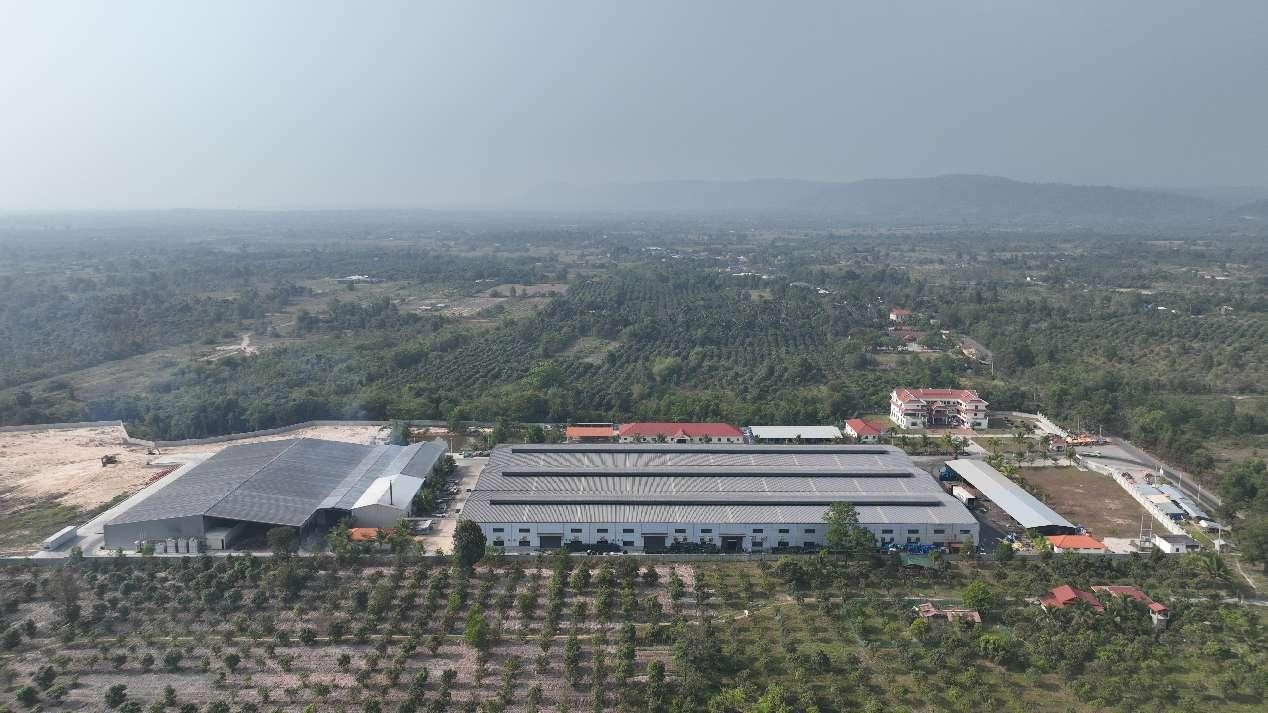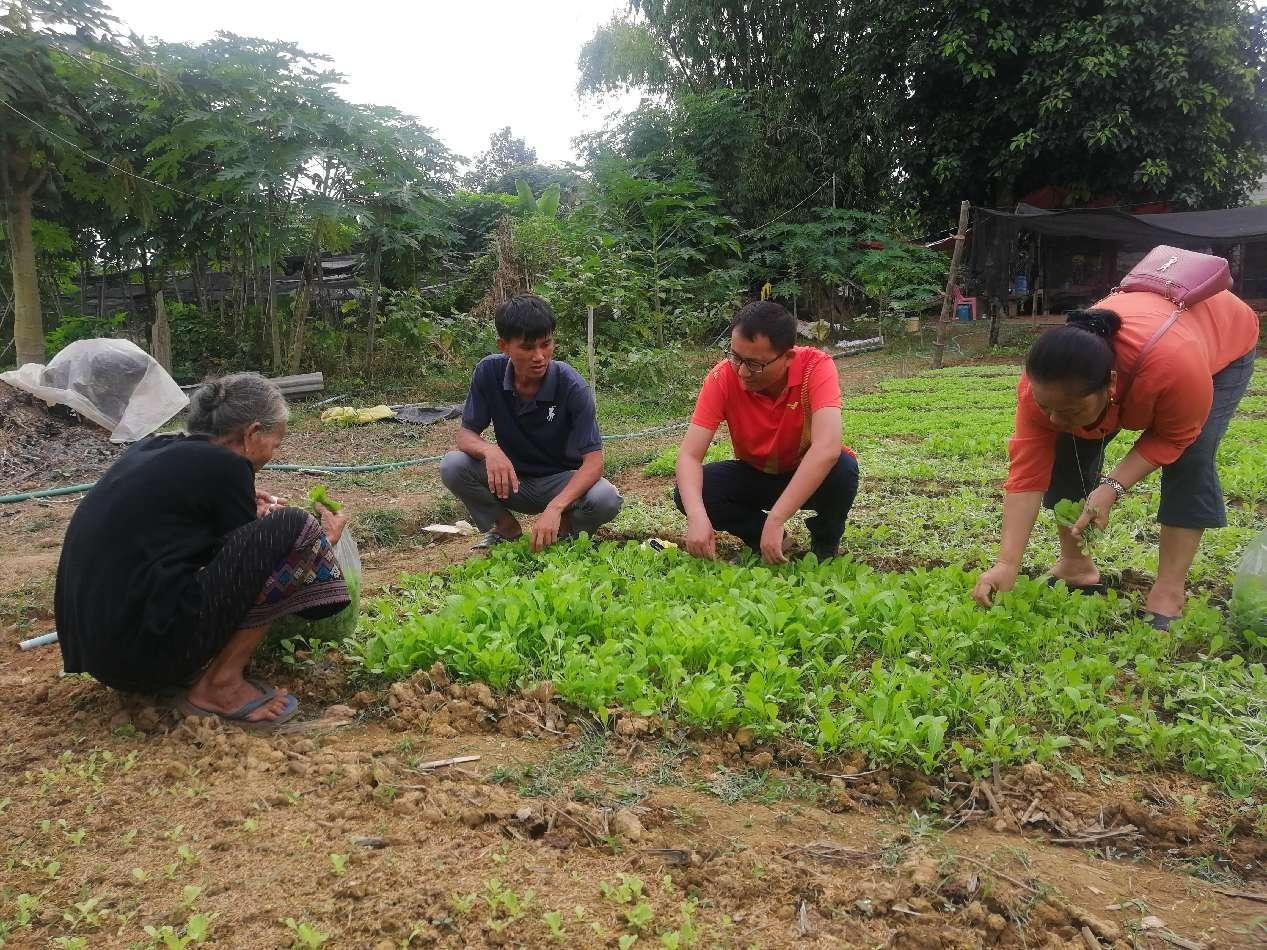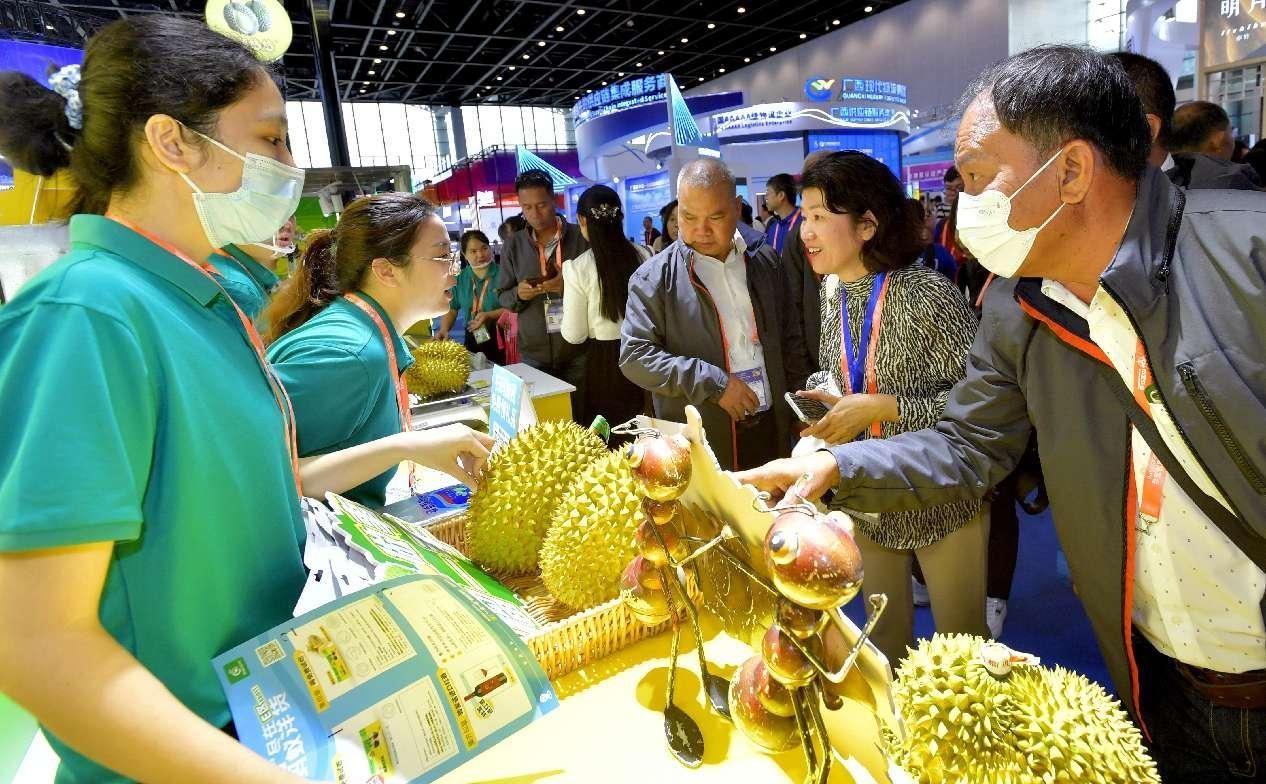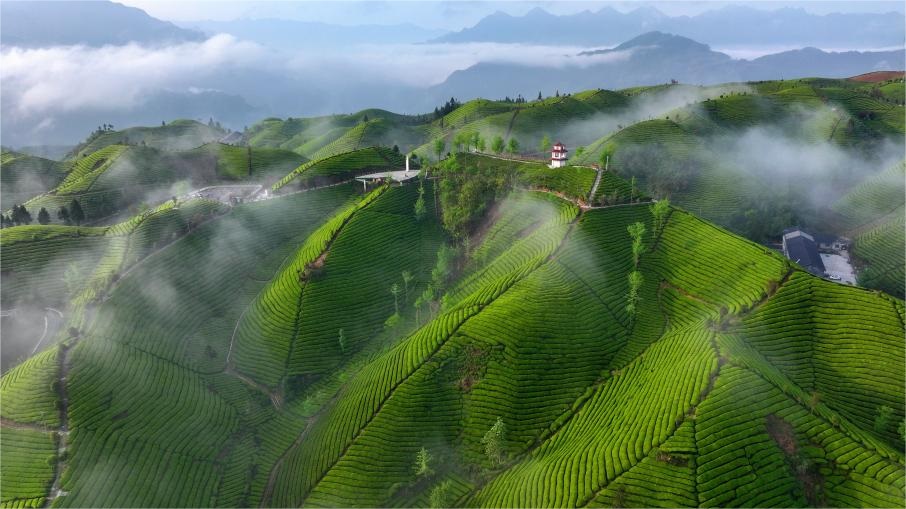Solid progress achieved in China-ASEAN agricultural cooperation

In recent years, Cambodia has exported a huge amount of mangos to China, which has driven the development of the local mango cultivation industry. Photo shows a mango plantation and processing facility in Kampong Speu Province, Cambodia. (People's Daily/Zhao Yipu)
Agriculture is a key area of cooperation between China and ASEAN. To date, China and ASEAN have signed over 40 bilateral documents on agricultural cooperation and established eight bilateral agricultural cooperation mechanisms. ASEAN is China's largest agricultural trade partner and one of the most important destinations for agricultural investment.
The continuously deepening agricultural cooperation between the two sides will benefit the people of all countries involved.
In recent years, an increasing number of agricultural products including durian, banana, longan, and sugarcane from ASEAN countries such as Thailand, Laos, and Cambodia, have made their way to Chinese consumers through the China-Laos Railway and the New International Land-Sea Trade Corridor.
ASEAN countries will benefit from the tariff preferences, streamlined customs procedures, and facilitation of trade and investment brought about by the implementation of the Regional Comprehensive Economic Partnership (RCEP), which will promote long-term growth in their exports, said Cambodian Ministry of Commerce's Secretary of State and Spokesperson Penn Sovicheat.
According to statistics released by China's Ministry of Agriculture and Rural Affairs, three ASEAN countries, namely Thailand, Indonesia, and Vietnam, were among the top 10 agricultural trade partners of China in 2023.
Last year, the total trade volume of agricultural products between Thailand and China reached $17.888 billion, with a total quantity of over 14.71 million tons.
A Thai media outlet said that thanks to the implementation of RCEP and the opening of the China-Laos Railway, fresh Thai fruits can reach China in just a few days, which makes them highly popular among Chinese consumers.

A Chinese expert of a China–Laos crop excellent varieties experimental station guides local farmers to grow vegetables. (Photo/Chen Jiuzhong)
At a China–Laos crop excellent varieties experimental station in Vientiane, the capital of Laos, Chinese experts were guiding local villagers in Xaythany district to grow vegetables in a science-based manner.
Lyu Feng, Chinese technician of the experimental station and a lecturer with Guangxi Vocational University of Agriculture, told People's Daily that the experimental station has tested over 300 crop varieties since 2013, and selected 67 excellent ones suitable for local cultivation.
Chinese experts have also organized multiple training sessions for local agricultural technicians, farmers, and students and faculties of universities.
In recent years, China has closely collaborated with ASEAN countries, establishing five agricultural experimental stations in Laos, Vietnam, Cambodia, Indonesia, and Myanmar.
These stations help improve cultivation efficiency of greenhouse vegetables with soilless cultivation and fertigation techniques. They have established demonstration bases to boost rice yield in green manners, introducing new techniques in seedling breeding, cultivation, water and fertilizer management, and pest control. The stations also use unmanned aerial vehicles to sow seeds and promote intelligent transplanting and harvesting.
Together, they had selected and tested over 750 new and superior varieties of vegetables and rice, which were later grown on 4 million mu (266,667 hectares) of land, and trained more than 1,000 agricultural technicians.
Chinese agricultural experts have worked hand in hand with local farmers and agricultural technicians in ASEAN countries, contributing to the green and digital transformation of agriculture.

Durians from Malaysia are exhibited at the 20th China-ASEAN Expo in Nanning, south China's Guangxi Zhuang autonomous region, Sept. 16, 2023. (People's Daily Online/Peng Huan)
The ASEAN-China Joint Statement on Deepening Agricultural Cooperation, released in 2023, stressed the importance of promoting sustainable, resilient, circular and low-carbon agriculture.
According to the document, the two sides will scale up sustainable and resilient agriculture and low-carbon farming, reduce agrochemical use and recycle agricultural waste, where applicable.
They will promote the trade of such agricultural products, and establish traceability systems for them where possible, so as to enhance the competitiveness of green, quality and distinctive products of the region.
Satvinder Singh, ASEAN deputy secretary-general, said that the deepening agricultural cooperation between ASEAN countries and China, along with the joint promotion of smart agriculture projects, has enhanced the competitiveness of agricultural products from both sides.
Malaysia's Agriculture and Food Security Minister Mohamad Sabu noted that China has valuable experiences in promoting agricultural production and technological advancements.
The expanding agricultural trade and deepening agricultural technology cooperation between China and ASEAN countries, including Malaysia, will bring about more development opportunities for ASEAN nations, the minister added.
Chinese Ambassador to ASEAN Hou Yanqi noted that China is ready to work together with ASEAN countries to promote greater synergy between the ASEAN-China Action Plan on Green Agricultural Development (2023-2027) and the ASEAN Sustainable Agriculture Guidelines, deepen cooperation in digital agriculture, smart agriculture, etc., and collaborate on green agricultural research and innovation, in order to enhance the green, circular and sustainable development of agriculture in the region.
Photos
Related Stories
Copyright © 2024 People's Daily Online. All Rights Reserved.









